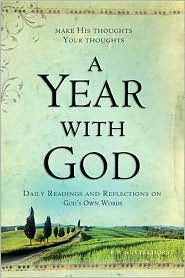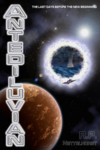I’ve disliked the Intelligent Design concept since I first heard about it when Behe's book came out. Frankly, to me it seems to be another example of the disreputable idea theologians have referred to as “the God of the gaps” theology. That is, there has been a tendency among many Christians to look at things that they don’t understand, then jump up and down with glee, “see, that proves it: there is a God. God did it.” Unfortunately, as our understanding of the universe advances, this “God” will continue to shrink until he becomes entirely unnecessary (and this, I suspect, is why so many Christians and members of many other faiths fear science: they know that this “God” is likely to be destroyed by it, and that’s the only “God” they have). ID has simply repackaged this foolishness and given it a new name. It reminds me of GTE renaming itself Verizon: it’s still the same bad phone company.
I recently read someone who wrote, in thinking about God, that “since natural laws are His, presumably He can violate them any time He feels like it.” This reflects a widespread assumption regarding omnipotence which I don’t think is correct.
I do not think it is accurate to say that omnipotence means God can do just anything at all. I also disagree, therefore, that “miracle” in any way is a violation of natural law. Hume’s comments on miracle are devastating to that traditional concept of miracle, but only assuming this widely accepted definition of miracle is accurate. At least since the late nineteenth century, most theologians who have thought about the issue have attacked Hume’s conclusions by dismantling this key presupposition (one that most people, unfortunately, still believe) that “miracle” means “violation of natural law.” A more precise definition is that a miracle is a sign, or an intervention by God, by which he hopes to get the viewer’s attention.
Most people would find it difficult to commit murder. Their morality constrains their behavior. Most would argue that God is moral and thus is unable to violate his moral precepts, especially given the additional assumption that God is perfect. What if we now also assume that the laws of nature are as much a part of who God is as the moral laws are? What if we modify the definition of omnipotence to then mean that God is capable of doing anything that is consistent with his nature? God is constrained, I would argue, by his own nature and can do nothing in violation of it; nor do I think that he can do anything that is logically absurd. God can no more make 2 and 2 be 5 than I can.
God then, might no more be able to violate natural law than he is able to violate his moral law. Certainly he does spectacular things, but do those spectacular things require violation of natural law? An airplane would be mighty spectacular to a person living in the middle ages, as would flights to the moon or computers. But none of those spectacular things are violations of natural laws. We simply know the natural laws well and can manipulate them in very creative ways. God, to put it oddly, perhaps, is then simply more technologically advanced than we are. And thus, in a universe where God is like this, science then would be compatible with the nature of reality.
I would expect that we could learn in detail how the universe functions down to the smallest level; I thus am content with evolutionary theory and modern science, though I remain a theist who believes that God is intimately involved with his universe, in that his manipulations are no more intrusive or problematic than the manipulations of his creative creatures and differ from them perhaps in degree, but not kind. I would also point out that God made us free, and thus it is always going to be possible for us to explain Him away, precisely because we would not be free otherwise. How free are you when you are aware that your boss is watching your every move? God didn’t want us to live that way, either.
I suspect that the moral laws and natural laws are both a reflection of God’s fundamental nature and that he cannot be other than who he is. For instance, the fundamental forces (weak force, strong force, gravity, electromagnetism) must exist in a certain relationship with one another—to several decimal places--in order to have a universe capable of supporting life as we know it. We can logically posit universes where the forces are different than in our universe, but such universes would be very uncomfortable for us and incompatible with our existence. God is constrained by 2 and 2 always having to equal four. Likewise, “thou shalt not murder” is probably a necessary constraint on a properly functioning universe, too; anything else would be uncomfortable. While God could have done and could do anything, I believe he is constrained by who he is, just as my behavior is constrained by who I am (such as, what are the odds that I will voluntarily drive on the wrong side of the street, even though the only thing stopping me is a double yellow line painted on the asphalt; hardly a big physical barrier).
Monday, August 15, 2005
Subscribe to:
Post Comments (Atom)






No comments:
Post a Comment